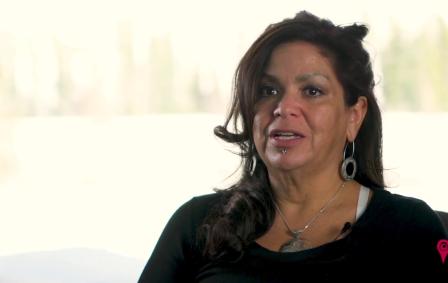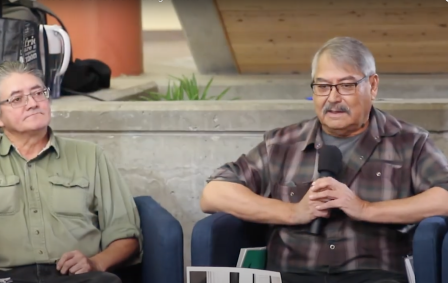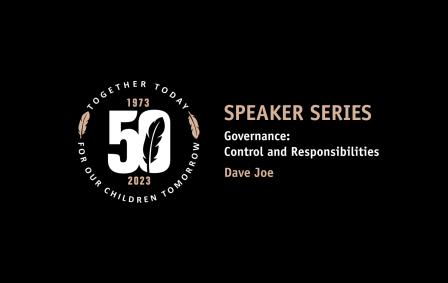Together Today For Our Children Tomorrow
The Children of Tomorrow is a series of 10 videos featuring prominent Yukoners who were children when Together Today for Our Children Tomorrow was being created. They share their thoughts on the past, present and future of the Yukon Agreements.
Back to the Children of Tomorrow series
Transcription
In 1973, Yukon First Nation leaders presented Together Today for Our Children Tomorrow to the Prime Minister Pierre of Canada. This document became the basis for negotiating Yukon First Nation land claims.
Daryn Leas, Tr’ondëk Hwëch’in citizen
Together Today for Our Children Tomorrow is a cornerstone document of Yukon History. It reflects the frustration Aboriginal people had, 1960s, early 1970s. Just as importantly, it’s a statement of where we wanted to go. It’s a clear statement that we wanted to be involved in the economy, that we wanted to have healthy communities, that we wanted our kids to be educated, and that we had communities full of hope. So for me, that document, that’s what it is.
Jackie Olson, Former Director of Heritage, Tr'ondëk Hwëch'in
Our elders of the day were very concerned about our future, you know, my future, and here I am today, saying the same words they do sitting at those implementation tables, and the message is still the same, you know. We’re here for our children of tomorrow.
Peter Johnston, Grand Chief, Council of Yukon First Nations
So very much so, Together Today is a foundational document that will be in existence and relevant for a hundred of years from now, and if you’ve read the document, it’s very simple, it could be read by a grade 4, you know, student that could totally understand and comprehend what was the vision then and how it relates to now.
Math’ieya Alatini, former chief of Kluane First Nation
It was a format for people’s voices, really, people coming together and saying, ‘yes we want more for our future, we want more for our children’. It allowed people to speak with that unified voice, and to really look to the future and say, ‘yes, we want to change it, and this is how we want to change it'.
Marilyn Jensen, M.A., Yukon College Indigenous Governance Instructor, & Founder of the Dakhká Khwáan Dancers
I often refer to it as a manifesto. It was the initial position of Yukon First Nations people, and it includes so much ideas, and so much vision, you know, and aspiration, and dreams. It’s very honest. It describes a period of time which I think is important for us to remember.
Pauline Frost, Former Senior Official, Vuntut Gwitchin Government
It’s our way of life. The concept behind that was whatever we do today is always for the children of tomorrow, and the children of tomorrow and tomorrow. It’s history. It’s us making history.


